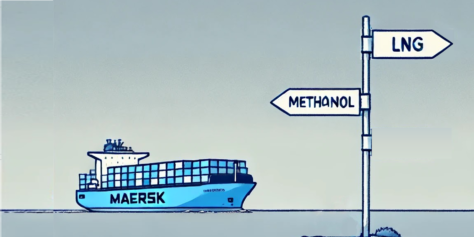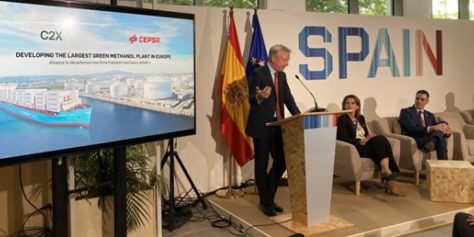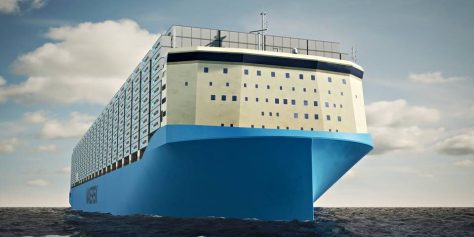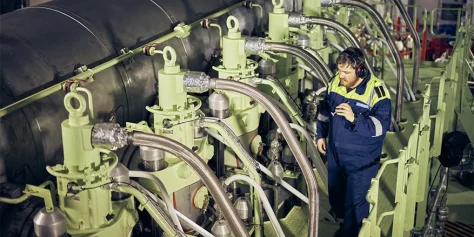Maersk has announced the signing of contracts for the construction and chartering of new vessels that will be able to operate on Liquefied Natural Gas (LNG). This move marks a significant change in the company's strategy, which until now had rejected the use of LNG in favour of more sustainable fuels such as green methanol.
The 4% of European shipping could run on synthetic fuels in 2030, according to the map prepared by T&E. But only a third of these projects are guaranteed, as fuel suppliers fear a lack of demand.
The construction of a green methanol plant in the Port of Huelva, the result of collaboration between Cepsa and C2X, a Maersk subsidiary, marks a milestone in the energy transition of the maritime sector. This project is integrated into a broader context: the consolidation of the Strait of Gibraltar as a key energy hub for the supply of sustainable fuels
The Maersk design is unique in the industry and enables energy efficiency per container transported to be improved by 20% compared to the industry average for ships of this size. In addition, the entire series is expected to save around one million tons of CO2 emissions per year, offering our customers carbon-neutral transport on maritime routes.
24 Nov 2021 DNV published in September 2021 the fifth update of its Maritime Forecast Report 2050 where the decarbonization scenarios of maritime transport are analyzed and ...
REintegrate and European Energy will establish a new Danish facility to produce the approximately 10,000 tonnes of carbon-neutral electric methanol that the first Maersk vessel with the capacity to operate on green electronic methanol will consume annually. Maersk will work closely with REintegrate and European Energy in the development of the facility.
- 1
- 2






